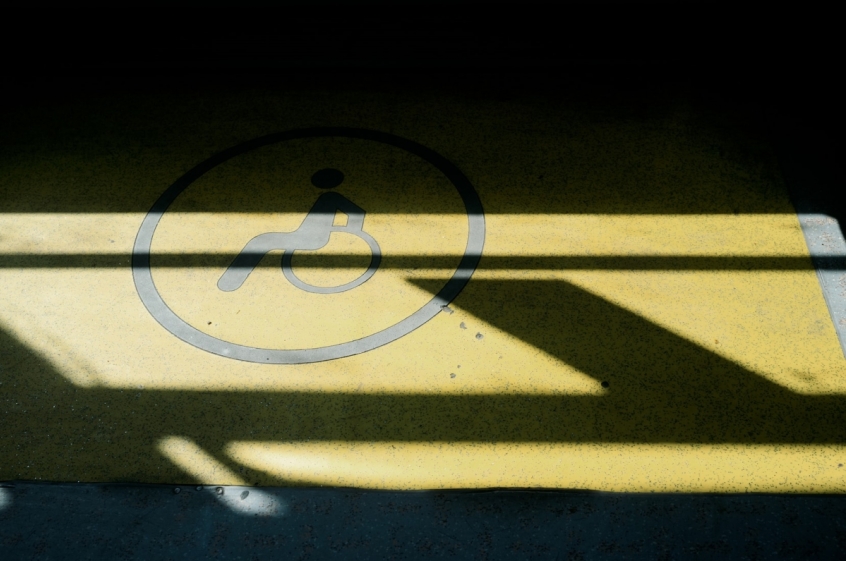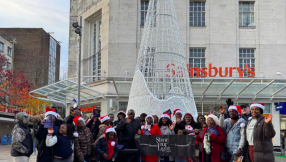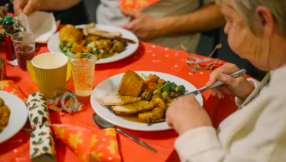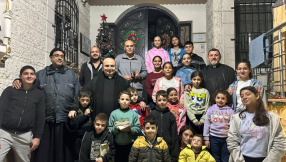
I've been wanting to write the following for over a year, but the time has never been right because it might look like I'm turning diversity into a competition.
I'm not, and it isn't.
All diversities are equal and should be equal in how society works to make sure no one is left behind.
We're all aware of how we should treat our fellow humans. But it is true that not all of us do and we need reminding.
Over the last year we have learnt more about racial inequality and about violence against women. Good. Sometimes the human race needs reminding to treat others with respect and dignity.
The campaigns have been huge with protest marches, statues attacked, social media campaigns and countless blogs.
We've been told to bend the knee, change our social media profiles and banners, light a candle and much more.
As I stand back and watch, there are some things I'm noticing about how we 'do' diversity: people pick and choose. Some are more fashionable to follow than others – and that shouldn't be. Equality is about making the world an equitable place for all.
If you are for justice and equality, you cannot pick and choose.
Yes, I know that there are moments where we have to concentrate on 'the one' diversity because something major comes up. This is only right.
But there is one diversity that isn't and never will be 'the one' in spite of many atrocities suffered.
Up and down the country churches of various denominations have done research, Bible studies and open debate on race and racism, issues around women and violence, and lots on LGBTQI+ on both sides of the debate. The Church is trying to learn, which is wonderful.
But here's the thing: injustices surrounding disability and additional needs rarely, if ever, get this treatment. We don't even get virtue signalling!
And, when these injustices have spanned hundreds and hundreds of years, one has to wonder why the silence?
Campaigns have happened – usually instigated by disabled people or their families - and yet still we see people with additional needs locked away, we see illegal 'do not resuscitate' orders put on people with disabilities, we are still skating far too close to euthanasia, and mothers are being pressured not to have babies that will be born with disabilities.
Remarkably, the Covid act still has a clause that removes the legal obligation of local authorities to provide needed care to people of any age who have disabilities and additional needs!
On top of that, too many places, including lots of churches, are still inaccessible.
There is much, much more I could say but I don't have the word count for the thousands of inequalities facing disabled people!
Suffice to say, those who march on subjects to do with disability are either disabled or love someone with a disability. The Church, of any denomination, remains largely silent on all justice issues in this area.
Conversations about it are done quietly – we don't read books about it together as a church and we don't have big discussions or Bible studies on it as a church. Rarely do the behind closed doors 'what should we do about disability' discussions include an actual disabled person.
No one changes their social media profile pictures or banners to show support for disabled people. And it feels as though no one believes 'disabled lives matter'. Instead, the disability hate crime rates rise each year without the blink of an eye. The fact that women with disabilities are more likely to be victims of abuse and crime is overlooked, with one even being told to go home a different way by the police when she reported an indecent assault.
No one turns a hair when autistic people are locked away for no good reason. Any conferences on disability theology have very low attendance and are, again, usually attended by those who are disabled or love someone who is.
My emails are full of people rejected from church because of their disability. The Facebook groups for those who have children with additional needs have post after post saying parents have decided never to return to church because of the way they were treated.
Disabled people are rejected from ministry selection processes because of their disability. Again, the list is just too long for my word count!
Twitter is a salutary lesson, with many saying the Church is the worst for 'able-ism'.
Too many times I hear Churches and Christian organisations talk about how their employment and volunteer process policies encourage diversity, and when the diversities are listed, guess what? Disability is missing.
Is the Church institutionally able-ist? Well, for a few wonderful churches, no. But for the majority I have to say yes.
Anyone up for a campaign? Please?
Kay Morgan-Gurr is Chair of Children Matter and Co-Founder of the Additional Needs Alliance, part of the Evangelical Alliance Council. For more, www.kaymorgangurr.com and on Twitter @kaymorgan_gurr













